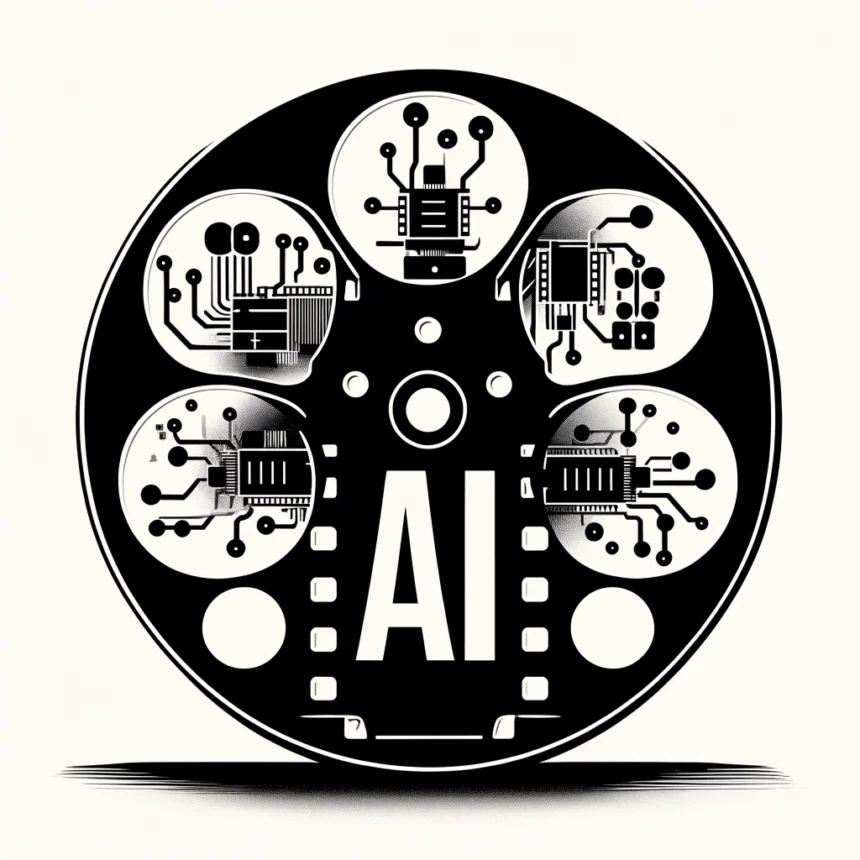OpenAI recently showcased its groundbreaking video generation technology, Sora, to Hollywood’s elite. This meeting, attended by big names like Universal, Paramount, and Warner Bros Discovery, wasn’t just a demonstration of cutting-edge tech but a significant moment where AI’s potential in revolutionizing filmmaking was put on full display.
What’s Happening & Why This Matters
At the heart of these discussions was Sora, an AI model capable of turning simple written prompts into detailed videos. The implications of such technology are vast, promising to lower production costs and reduce reliance on computer-generated imagery (CGI). As Hollywood continues to navigate the challenges of integrating AI into the creative process, OpenAI’s presentations come at a critical juncture, especially following last year’s industry-wide discussions on AI’s role in content creation.

Sora’s Hollywood Debut
During a groundbreaking showcase, OpenAI’s leaders, Sam Altman and Brad Lightcap, unveiled Sora, their latest AI marvel, to Hollywood’s heavyweights from Universal, Paramount, and Warner Bros Discovery. This wasn’t merely a tech demo; it was a pivotal conversation starter about Sora’s potential to redefine movie-making. By turning text into vivid videos, Sora promises to streamline film production and scale back on costly CGI. Yet, it’s clear that Sora is still a work in progress—glass that bounces instead of shatters and occasional extra limbs on characters highlight the quirks that need ironing out. Despite these early-stage hiccups, studio execs saw beyond the limitations to envision a future where Sora (or similar technologies) could not only save valuable time and money, but also unleash new creative possibilities.
“There’s this incredible potential with Sora to shake up how we think about making movies,” shared an anonymous studio executive.
The mix of excitement and anticipation for mixing production, talent, and AI This moment marks the beginning of a significant shift in the intersection of AI and cinema, with Sora at the forefront, nudging Hollywood towards an innovative, AI-augmented era of storytelling.
The Studios’ Bigger Picture
The response from Hollywood studios to OpenAI’s Sora demonstration was cautiously optimistic. They acknowledged the potential for Sora to revolutionize film production by saving time and money. However, they also recognized that the technology still needs development. Challenges like objects behaving unrealistically and the occasional addition of extra limbs in videos show there’s room for improvement. Despite these limitations, the possibility of incorporating Sora into future projects intrigued many studios, though formal discussions about partnerships or licensing are still on the horizon. “We’re looking at a future where technology like Sora could significantly impact how we produce content,” one studio executive remarked, reflecting the industry’s openness to this AI-driven innovation. This sentiment underscores a broader understanding within Hollywood: AI, particularly Sora, represents a valuable tool that could complement the creative process rather than replace it. The industry’s overall reaction signals a readiness to explore how AI can enhance storytelling and production, marking the beginning of a new chapter in filmmaking where technology and creativity intersect more deeply than ever before.

TF Summary: What’s Next
The journey of integrating OpenAI’s Sora (of any GenAI) into Hollywood is just beginning. This innovative AI technology has the potential to transform how movies are made by simplifying production processes and reducing costs. The initial reactions from studio executives hint at a future where AI plays a significant role in the creative industry. However, this will require further development of Sora to address its current limitations. The dialogue between OpenAI and Hollywood studios suggests a collaborative approach to refining and implementing this technology.
The next steps involve both parties working together to harness AI’s potential responsibly. This partnership could lead to groundbreaking advancements in filmmaking, where creativity is enhanced by technology, not overshadowed by it. The evolution of Sora and similar AI tools will likely shape the future of entertainment, making it an exciting time for both the tech and film industries.



